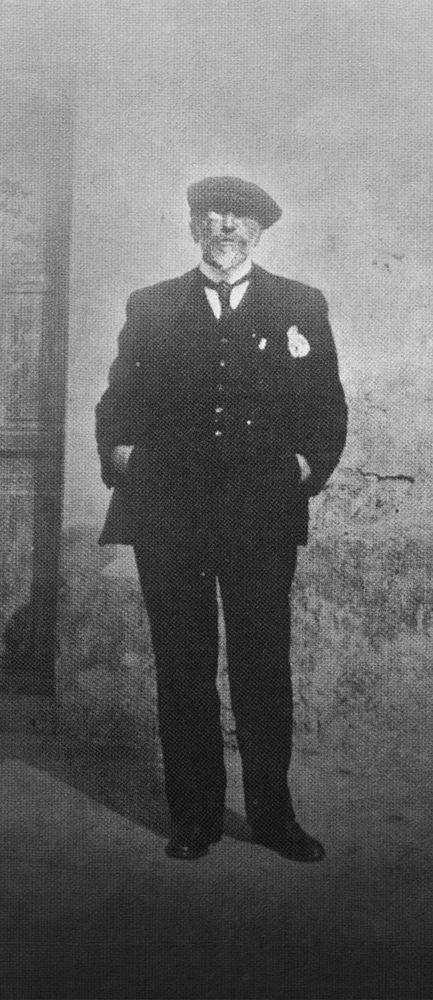
Joseph Conrad
actually Teodor Józef Konrad Korzeniowski, a Polish-English writer and journalist
(born on 03 December 1857 in Berdyczów, Poland, died on 03 August 1924 in Bishopsbourne, England)
Conrad gave the British English invented by himself, a language which couldn't have been invented by the most genius Englishman – John le Carré about Joseph Conrad.
Joseph Conrad's literary work is based primarily on his experiences associated with his many years spent at sea. Conrad interacts with the reader through his works, touching upon important ethical issues and referring to such inalienable human values as duty, honesty, honour and loyalty.
Conrad's life is quite unusual for a Pole and in itself could provide interesting material for a travel novel. The writer was born in 1857 in Berdichev, which today lies in Ukraine. His father - Apollo Korzeniowski was a nobleman, writer and a Polish independence activist, involved in the activities of conspiracy directed against the Russian tsar.
Young Joseph, then still known under his Polish name, did not share his father's patriotic passion. He had always dreamed of travelling the world. In 1874 at the age of only seventeen, he decided to leave the family land. He went to Marseilles, where he enlisted on a ship. During his numerous expeditions, Conrad visited, among other places, South America, Martinique and the Caribbean. Echoes of sailor's life is clearly evident in his work.
After voyages on French ships, it was time for England. In 1878 Conrad began service in the British merchant navy. He went on a failed cruise to Bangkok (the ship burned down during the journey), which ended mooring in Singapore. In 1886 Joseph became naturalized British and obtained the rank of captain, thanks to which two years later he started travelling on his own boat on the route Australia-Asia (experiences from this period were described in the book Shadow Line). In 1889 he settled down in London, where he began writing his first novel - Almayer's Folly.
In 1890 Conrad underwent one of his most memorable trips. Employed as a captain on a ship of the Belgian Joint Stock Company, he went on a secret trip to Congo. Contrary to the fantasies of the writer, it was not an exploratory expedition, but a brutal trade mission, aimed at intensive exploitation of local goods, combined with the exploitation of the local black population. Conrad observed corruption of Europeans, representatives of a higher civilization, which manifested itself in resurgence and display of primitive instincts and this later led him to write his most famous work, a novel Heart of Darkness (1899).
Exhausted both physically and mentally, Joseph Conrad abandoned his sailing career in 1894. From that moment on, he fully focused on writing. His exceptional knowledge of English (Conrad is considered one of the greatest prose writers in the history of English literature) allowed him to reach a wider audience. Nevertheless, for a long time he remained a rather anonymous persona. Novel Chance, released in 1916 finally provided Conrad recognition and allowed him to escape out of the financial doldrums. He died eight years later, in 1924.
Do you know?
- Conrad's stay aboard the French Navy ships was paid his uncle, giving the boy an annual salary of 2 thousand francs, extremely generous at the time.
- When Conrad's Polish citizenship and the fact that he is a subject to the tsar came out, the future writer was threatened with expulsion from the Navy. He even unsuccessfully attempted suicide.
- As sailor, Conrad was involved in smuggling weapons to supporters of Charles VII, pretender to the Spanish throne.
- During his Congolese expedition the writer repeatedly got sick; he suffered from malaria, dysentery and four times from yellow fever.
- Besides English, the writer also used French and German fluently.
- In 1893. Conrad visited his uncle in Ukraine. It was his only personal trip to the area. He never returned to Poland, although he had such an intent later in life. He wrote about Polish issues through journalistic work.






